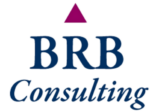We get it.
You hear CARF and immediately think:
“Expensive.” “Exhausting.” “Excessive.”
You’re not alone.
Most leaders don’t light up at the thought of accreditation. In fact, many whisper it like it’s a punishment instead of a process.
But here’s the truth—CARF isn’t the problem.
It’s the misunderstanding around it.
When “CARF” Feels Like a Four-Letter Word
If you’ve ever sat through a team meeting where someone suggested maybe we should pursue CARF, you probably felt the collective eye roll.
Who has time for that?
We’re barely keeping up as it is.
We’re not one of those big agencies with a full compliance department.
We’ve been there.
We’ve been the ones in the trenches—trying to keep the lights on, paperwork current, and staff from burning out—while someone cheerfully mentions “continuous quality improvement” like it’s a magic wand.
So before anyone assumes we don’t understand “the real world,” let’s say this clearly:
We do.
We’ve lived it too.
We just also know what’s waiting on the other side of that sigh.
Accreditation Isn’t About Passing. It’s About Proving.
At its core, CARF is a blueprint for stability.
It protects programs, staff, and the people served—especially when the unexpected happens.
When organizations use the standards as a foundation instead of a checklist, they’re not just preparing for a survey.
They’re building:
- Consistency in daily operations.
- Confidence in communication with funders and regulators.
- Credibility when outcomes or compliance questions arise.
That’s not busywork.
That’s long-term sustainability.
What Happens When the Shift Happens
Something powerful changes when organizations stop asking, “How do we get through the survey?” and start asking, “How do we build a system that stands on its own?”
Policies start making sense.
Staff stop dreading audits.
Leaders stop worrying about who’s holding the compliance bag this year.
The work becomes less about surviving a survey and more about thriving between them.
That’s the sweet spot—the place where quality care, empowered teams, and sustainable systems actually meet.
Why It Matters Now
Between workforce shortages, shifting regulations, and increasing oversight, accreditation isn’t just a gold star anymore.
It’s a buffer.
A structure.
A way to make sure you’re not reinventing the wheel every time something changes.
So if your team is on the fence—or you’re trying to convince an executive who’s still skeptical—try reframing the question:
Don’t ask, “Can we afford accreditation?”
Ask, “Can we afford not to build something this strong?”
The Bottom Line
CARF isn’t a bad word.
It’s just been misused, misunderstood, and occasionally mishandled.
When done right, it’s not about more paperwork.
It’s about more purpose.
At BRB Consulting, we believe accreditation should make your organization stronger—not smaller.
We’re here to help you build systems that fit your reality, strengthen your team, and sustain your mission for the long haul.
Because when CARF becomes part of the culture, confidence follows.
